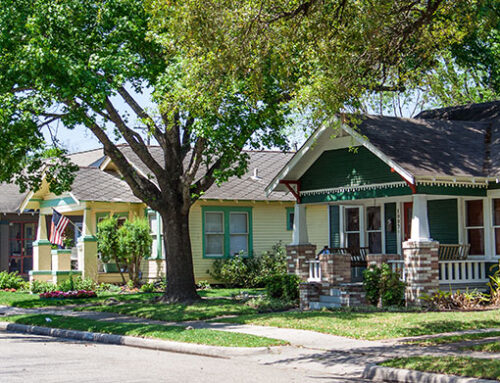
When Felipe approached me after dinner one evening to tell me that he wanted to be a real estate investor like me, I told him that the news called for a celebration. I had known for some time that my son-in-law was interested in buying, rehabbing, and reselling houses, thanks to my daughter, Jenna. But, I was waiting for Felipe to say something. That’s how I’d know he was serious. And, when he presented me with the research he’d already done on house flipping training programs, it was obvious he was more than serious—he was eager to get going. Ever ready to help him out, I reviewed his list and helped him narrow his choices down to the best real estate investor training available.
Where to Get the Best Training in House Flipping
Though it isn’t usually necessary to obtain a college degree or get a real estate license to invest, it is important to learn the trade if you hope to earn a living. Flipping houses looks entertaining on TV, but it’s pretty hard work that requires serious focus and dedication. And, without the right training to lay the groundwork for what can turn into a long and winding road, you could end up making the kind of mistakes—like buying one money pit too many—that put a stop to your real estate investing career.
But, knowing what to look for in a real estate investor training program, or who to trust to teach it, isn’t always obvious. I can tell you, however, that at the very least you should be taught how to buy and renovate property that leaves room on the other side for realizing a decent ROI. And, that means you also have to learn how to effectively use real estate investment valuation tools so that you can calculate all of your costs as quickly and as accurately possible—especially if you intend to invest in a competitive market, like New York or Chicago. If the program comes with access to a mentor and ongoing support to help you build your business while you build a portfolio, even better.
Are there training programs out there that hit at least the minimum requirements for offering guidance to beginners on investing in real estate? Let’s review Felipe’s list to find out.
Fortune Builders
Fortune Builders offers two-hour introductory courses at various locations around the country for free, after which you can opt to sign on for one of their more intensive three or four-day boot camps. They also offer home study courses on such topics as generating leads and evaluating repair costs, workshops that include information on how to raise money and utilize tax strategies, and one-on-one coaching to help you take your overall investing education—and your business—to the next level.
Unfortunately, though almost all of the reviews on the Fortune Builders website are positive, much of the online chatter about the company elsewhere is not. The main issue seems to center on whether or not the program is a scam since they provide little-to-no information about student prices up front. And, it certainly looks like after you take all of the individual courses and attend all of the live events, you could be at risk of spending tens of thousands of dollars—not including the cost of hiring one of their mentors. That doesn’t necessarily make the program a scam. If you’ve got that kind of cash to spend and there is a chance to make your money back and more, it could be worth it. But, it might take you several months or longer to get through all of the training modules and get out there investing. And, you’ll be without a significant chunk of funds to do it.
Freedom Mentor
Freedom Mentor allows you to try one of its online video courses for free then apply to be an apprentice and receive the rest of your educational materials at no charge or pay for a comprehensive training curriculum plus investing certification. The course list is extensive and includes everything from how to find motivated seller leads to how to fund your first few deals. So, it’s possible that once your studies are complete you’ll have a full understanding of how to flip houses. If you’re chosen as an apprentice, you’ll not only get your instruction for free, but you’ll get a mentor and a real estate partner to boot.
To be chosen as an apprentice, however, will still cost you—as much or more as just buying all the courses outright. The full price of the curriculum is a hefty $40,000, which is a lot to pay before you even plunk down a penny to open your company’s doors. But, the full price of an apprenticeship is half of your profits for up to $500,000 and for as long as your contract dictates. In theory, if you’re able to make several hundred thousand dollars as a result of your training, that’s a good thing. Except that, in practice, giving up the same amount isn’t going to feel great, especially when you realize that it takes an awful lot of flipped houses to get you earning that kind of money.
Rich Dad/ Elite Legacy Education
Rich Dad/Elite Legacy Education gives you several options and formats for learning how to invest in real estate. Coursework includes how to develop relationships with banks to make buying short sales and foreclosures easier as well as how to fund the rehab of your fix-and-flips to maximize your potential returns. You can take classes in person one weekend at a time or over the course of several weeks. And, you also have the choice to learn online or via live streaming if you can’t afford to constantly be away from work or your family while you’re in training. Of course, you might not even be able to afford the classes since each can cost as much as $6,000 and run your total training bill upwards of $50,000. Then, you’ll still have come up with some cold, hard cash to put your training to use by buying houses to flip when you finish.
Harvard Extension School
The Harvard Extension School at Harvard University provides two program formats for learning how to buy, rehab, and resell properties and you get a certificate of completion at the end of either one. Whether you take your classes on campus or online, you’ll learn how to create a real estate investment business plan, find funding, and evaluate properties for a variety of exit strategies. The number of actual classes you have to enroll in isn’t large, but the length of time you’ll have to devote to them is about a year-and-a-half in total. And, because each semester-long course is pricey—it is Harvard, after all—you’ll rack up a bill that’s well over $10,000. That’s a lot of time and money to sink into something that doesn’t offer any ongoing support or mentorship opportunities along with its certificate.
Udemy
Udemy is a strictly online educational platform that offers a variety of real estate investing courses, including several that focus specifically on buying, renovating, and selling houses. Classes typically only cost between $50 and $200—some of the least expensive around—and can be accessed anytime once purchased. So, if you should ever need a refresher course, you’ve got one at your fingertips. Another benefit of training with Udemy instructors is that they offer 30-day money-back guarantees. That can, potentially, make trying these courses worth the small investment of time and cash.
There are several problems with Udemy, however, that make spending any amount of money on their investing classes a sticking point with me. First, a 30-day money-back guarantee isn’t particularly helpful since you won’t likely know within that time frame if your instruction has paid off. And, the names and professional experience levels of the instructors aren’t always provided. So, it’s possible to pick up bad habits from individuals who teach well, but may not invest successfully—or, at all. That, along with the actual investing time you could lose by having to take one online course after another just to learn enough to think about buying your first property is enough of a reason to pass on Udemy.
Contact
"*" indicates required fields





